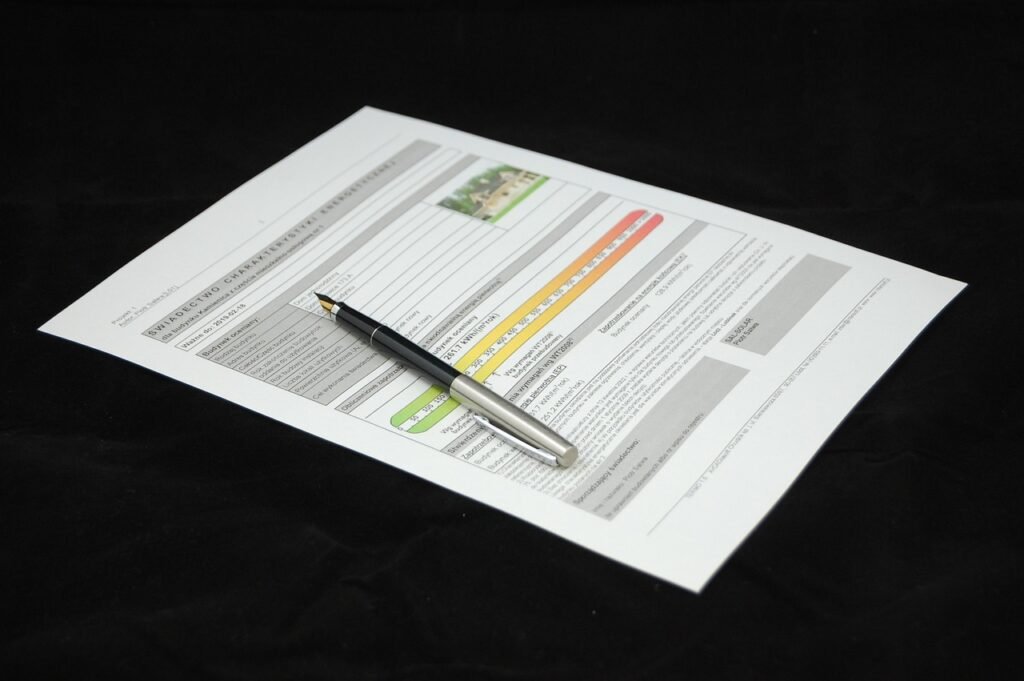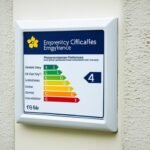Understanding Minimum Energy Efficiency Standards (MEES) for UK Landlords
As a landlord in the UK, it’s crucial to stay informed about the latest regulations affecting your rental properties. One such regulation is the Minimum Energy Efficiency Standards (MEES), which aims to improve the energy efficiency of private rented properties. In this comprehensive guide, we’ll dive into the essential aspects of MEES and how you can ensure compliance while maximizing the value of your rental investments.

What are Minimum Energy Efficiency Standards (MEES)?
Introduced in 2015, the Minimum Energy Efficiency Standards Regulations (MEES Regulations) are part of the Energy Efficiency (Private Rented Property) (England and Wales) Regulations.
These standards require landlords to ensure their rental properties meet a minimum energy efficiency rating before granting a new tenancy or renewing an existing one.
The MEES regulations apply to both domestic and non-domestic properties in England and Wales. As of April 1, 2020, landlords are prohibited from letting properties with an Energy Performance Certificate (EPC) rating below E, unless they have a valid exemption.
To determine your property’s energy efficiency, an EPC assessment is conducted by a qualified assessor. The EPC rates properties on a scale from A (most efficient) to G (least efficient), taking into account factors such as insulation, heating systems, and windows.
The Importance of Complying with MEES
Complying with MEES is not only a legal obligation but also a wise business decision for landlords. Here are some key reasons why:
- Avoid penalties: Landlords who fail to comply with MEES can face substantial fines. The penalty for renting out a non-compliant property for less than three months is up to £2,000, while renting a non-compliant property for three months or more can result in fines of up to £4,000.
- Attract environmentally-conscious tenants: As awareness about climate change and sustainability grows, more tenants are seeking energy-efficient homes. By ensuring your rental property meets MEES standards, you can appeal to this growing market and potentially command higher rental rates.
- Reduce tenant turnover: Energy-efficient properties often result in lower utility bills for tenants, which can contribute to increased tenant satisfaction and retention. Happy tenants are more likely to stay in your property longer, reducing vacancy periods and associated costs.
Steps to Ensure MEES Compliance
To ensure your rental property complies with MEES, follow these steps:
- Check your property’s EPC rating: If you haven’t already, obtain a valid EPC for your property. You can search for your property’s EPC on the official EPC register.
- Identify areas for improvement: If your property’s EPC rating is below E, identify the areas that need improvement. Your EPC report will provide recommendations for energy efficiency upgrades, such as:
- Insulating walls, roofs, and floors
- Upgrading to double or triple-glazed windows
- Installing a more efficient heating system
- Switching to energy-efficient lighting
- Make necessary improvements: Implement the recommended energy efficiency measures to bring your property up to the required standard. Consider working with professional contractors who specialize in energy efficiency upgrades to ensure the work is carried out effectively.

Financial Support for Energy Efficiency Improvements
Making energy efficiency improvements to your rental property can be a significant investment. Fortunately, there are financial support options available to help landlords meet MEES requirements:
- Green Deal: The Green Deal is a government-backed scheme that allows landlords to make energy-saving improvements to their properties without upfront costs. The loan is repaid through the property’s electricity bill, and the repayments should not exceed the expected energy savings.
- Energy Company Obligation (ECO): The ECO is a government energy efficiency scheme that obligates larger energy suppliers to deliver energy efficiency measures to domestic premises. Landlords may be eligible for fully-funded or partially-funded measures, depending on the tenant’s circumstances and the property’s characteristics.
- Local authority grants: Some local authorities offer grants or loans for energy efficiency improvements. Check with your local council to see if any schemes are available in your area.
Exemptions to MEES
In some cases, landlords may be exempt from MEES requirements. The most common exemptions include:
- High-cost exemption: If the cost of making the necessary improvements to bring the property up to an E rating exceeds £3,500 (including VAT), the landlord may register for an exemption.
- Wall insulation exemption: If a property cannot be improved to an E rating because the recommended wall insulation measures have been deemed inappropriate by a specialist, the landlord may register for an exemption.
- Consent exemption: If a landlord has sought consent from a third party (e.g., planning authority, mortgage lender) to make energy efficiency improvements, but consent has been refused or granted with unreasonable conditions, the landlord may register for an exemption.
Exemptions must be registered on the PRS Exemptions Register and are valid for five years. After this period, landlords must attempt to improve the property’s energy efficiency again before registering for another exemption.
The Benefits of Going Beyond MEES
While achieving an E rating is the minimum requirement under MEES, landlords can reap additional benefits by aiming for even higher energy efficiency standards:
- Increased property value: Energy-efficient properties are increasingly desirable, and investing in energy efficiency improvements can boost your property’s value. According to research by the Department of Energy and Climate Change, properties with an A or B EPC rating can command a sale price premium of up to 14% compared to less efficient properties.
- Reduced void periods: Energy-efficient properties are more attractive to tenants, which can help minimize void periods between tenancies. By investing in energy efficiency, you can maintain a steady stream of rental income and reduce the financial impact of vacant periods.
- Future-proofing your investment: As the UK government continues to prioritize energy efficiency and carbon reduction, it’s likely that energy efficiency requirements for rental properties will become increasingly stringent in the future. By investing in energy efficiency now, you can future-proof your rental investment and stay ahead of potential regulatory changes.

Case Study: Successful MEES Compliance
To illustrate the benefits of complying with MEES, let’s look at a real-life example:
Sarah, a landlord in Manchester, owns a 1960s-built, three-bedroom rental property. When she obtained an EPC for the property in 2020, it received an F rating, primarily due to an outdated heating system and poorly insulated walls and roof.
To comply with MEES and improve the property’s energy efficiency, Sarah took the following steps:
- Upgraded the heating system: Sarah replaced the old, inefficient boiler with a modern, condensing boiler. She also installed thermostatic radiator valves (TRVs) to provide better temperature control in individual rooms.
- Improved insulation: Sarah had cavity wall insulation installed and added loft insulation to a depth of 270mm. These measures significantly reduced heat loss through the walls and roof.
- Upgraded windows: Sarah replaced the single-glazed windows with double-glazed units, further improving the property’s thermal efficiency.
After completing these improvements, Sarah obtained a new EPC, and the property achieved a D rating. Not only did this bring the property into compliance with MEES, but it also resulted in lower energy bills for the tenants and a more comfortable living environment.
When the property was advertised for rent, Sarah found that it attracted a high level of interest from prospective tenants. Many tenants specifically mentioned the property’s energy efficiency as a key factor in their decision to apply. As a result, Sarah was able to let the property quickly and at a slightly higher rental rate than comparable, less efficient properties in the area.
Key Takeaways
- Minimum Energy Efficiency Standards (MEES) require rental properties in England and Wales to have an EPC rating of E or above.
- Compliance with MEES is a legal obligation for landlords and failure to comply can result in substantial fines.
- Energy-efficient properties are attractive to environmentally-conscious tenants and can command higher rental rates and sales prices.
- Landlords can access financial support, such as the Green Deal and ECO, to help fund energy efficiency improvements.
- Exemptions to MEES are available in certain circumstances, such as high-cost improvements or wall insulation deemed inappropriate.
- Investing in energy efficiency beyond the minimum requirements can future-proof your rental investment and provide additional benefits, such as increased property value and reduced void periods.
By understanding and complying with MEES, UK landlords can ensure they are operating within the law, providing quality housing to tenants, and maximizing the value of their rental investments. Embrace the opportunity to improve your property’s energy efficiency and reap the rewards of a more sustainable and profitable rental business.




